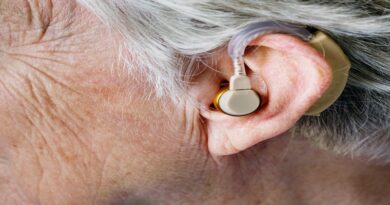Postgraduate courses in Dentistry
You’re never fully dressed without a smile! The importance of dentists is definitely not overlooked, to both look good and feel healthy within our smile and oral care.
If you’re interested in enhancing your skills and knowledge even more by taking on a postgraduate degree then you’ve come to the right place.
Have a look and start your research here.
What is dentistry?
Dentistry is the area of medicine that deals with the study, diagnosis, prevention and treatment and oral care. It is also known as dental medicine or oral medicine. Dentistry involved both surgical and non surgical procedures.
What do dentists do?
The day to day duties of a dentist may differ depending on the clients and their specific needs. As a dentist, you may work around 36 hours a week, depending on your employment. There may be times you might work overtime but generally, the working hours of a dentist are quite regular. Principle dentists may work a few hours less than associated dentists. A large number of dentists are self-employed contractors in general practice, mixing NHS with private work.
General duties may include:
- Examine dental and oral hygiene of clients
- Operate technical equipment
- Keep records and documents of clients and their history
- Record clients dental structures
- Work alongside dental nurses
- Develop good relationships with clients, nurses and receptionists
- Keep up to date with technology and developments in the industry
- Undergo continuous training
- Continuously developing you knowledge in the field
Courses
There are many courses to choose from in this area across the UK. Some courses offer the option of studying both part-time or full time. Some courses may have restrictions or changes due to Covid-19. More detail on courses can be found on university websites or course overviews. Examples of courses include:
Endodontics
Postgraduate courses in endodontics allow dental practitioners to gain a higher dental degree by providing training in endodontics. Students will gain the necessary skills and knowledge needed in order to have the ability to to work in an area that deals with dental pulp and tissues surrounding the roots of a tooth.
Orthodontics
Other postgraduate courses in this area include courses in orthodontics and will give students the opportunity to gain a solid foundation in diagnosing, preventing and the correction of malpositioned teeth and jaws as well as misaligned bite patterns. Students will gain the skill and knowledge to take their dentistry career a step further.
Clinical Oral Surgery
Postgraduate courses in oral surgery deliver the guidance and teaching of theory and safe practice of oral surgery. These courses will provide evidence-based teaching in the theory and practice of oral surgery, provide opportunities for personal and professional development and help students to develop an understanding of safe practice of oral surgery and aftercare and much more.
Other postgraduate courses available include Paediatric Dentistry, Advanced Clinical Periodontics, Advanced General Dental Practice, Advanced Clinical Periodontics, Advanced Clinical Restorative and Aesthetic Dentistry, Advanced General Dental Practice, Clinical Oral Implantology, Oral Surgery and Oral Implantology and more.
Entry requirements
Entry requirements may change from course to course and University to University so it is important to research your specific course to be sure you meet the criteria. In most cases, a bachelor’s degree in dentistry is required. Some courses will look for a 2.1 degree while a 2.2 may suffice in others. More detailed course outlines can be found on University websites and course overviews.
Salary
The salary of a dentist depends mostly on their type of employment. For the most part, dentists are self employed contractors and often mix private work with NHS work. It is expected that dentists working in their own practice may earn anything from £50,000 to £110,000 but profits may vary depending on the size of your practice and location. Bigger areas may have more clients. It is believed that the average salary of a dentist in the UK comes in around £63,335 with the very least amount you can earn coming in around £30,000. These figures are used as a guide only and are based on estimates.
Skills and requirements
Skills and requirements needed in this area include:
- Strong communication skills
- A friendly manner
- Patience
- Good people skills
- Ability to work well with others – eg. dental nurses
- Management skills
- Ability to adapt communication to each person
- Work well under pressure
- Ability to work flexible working hours in some cases
- A thorough approach
- Methodological approach
- Ability to use and learn to use equipment
- A desire to learn continuously and develop your career




